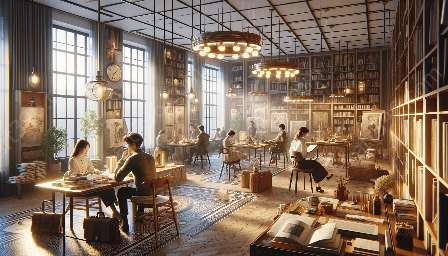Introduction to Formalism in Art
Formalism in art refers to a critical approach that emphasizes the formal elements of a work of art, such as its composition, color, line, and shape, over its content or context. This approach particularly gained prominence in the 20th century with critics and theorists attempting to understand and define the nature of art and the viewer's experience. Formalism has sparked numerous debates within contemporary art theory, shaping the discourse around the interpretation and evaluation of art.
Key Concepts in Contemporary Formalist Theory
Contemporary formalist theory encompasses a wide range of concepts that have sparked debates among art theorists and critics. Some of the key concepts include:
- Autonomy of Art: One of the central debates revolves around the autonomy of art. Formalists argue that art should be valued for its intrinsic qualities, independent of its social, political, or historical contexts. Critics of formalism, however, contend that art cannot be fully divorced from its socio-political implications.
- Emphasis on Form: Formalist theory places a strong emphasis on the formal elements of art, such as line, color, and shape. This focus on form has been both celebrated for its ability to transcend meaning and criticized for neglecting the socio-political dimensions of art.
- Universalism vs. Contextualism: Formalist theory has sparked debates about the universality of aesthetic principles versus the importance of cultural and historical contexts in art interpretation. Some argue for the universal applicability of formalist principles, while others advocate for a more contextual understanding of art.
Criticisms of Formalism
While formalism has made significant contributions to art theory, it has also faced criticism from various quarters. Critics argue that formalism tends to prioritize formal qualities at the expense of content and context, leading to a limited understanding of art. Additionally, formalism has been accused of promoting a Eurocentric and elitist view of art, overshadowing non-western and marginalized artistic traditions and voices.
Implications for Modern Art Discourse
The debates within contemporary formalist theory have profound implications for modern art discourse. They have led to a reevaluation of the relationship between form and content in art, the role of the viewer in art interpretation, and the need for a more inclusive and diverse approach to art criticism. Artists, critics, and theorists continue to grapple with the legacy of formalism and its enduring impact on art theory and practice.

